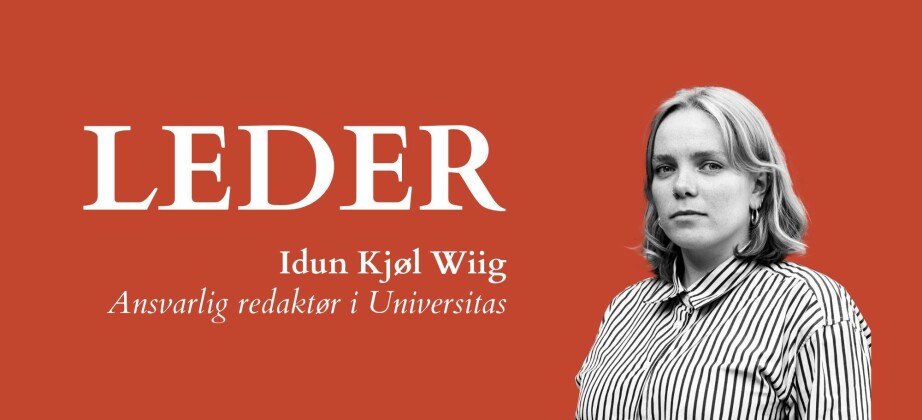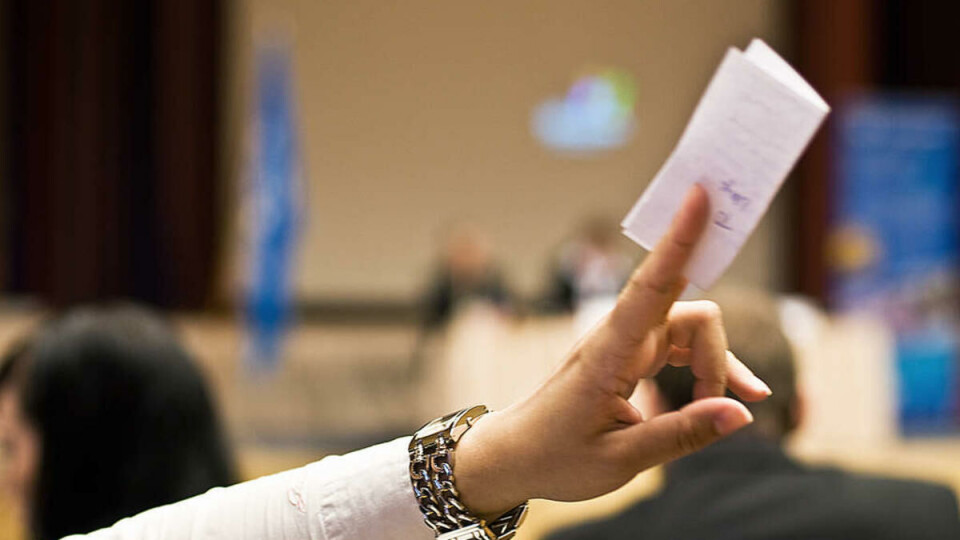
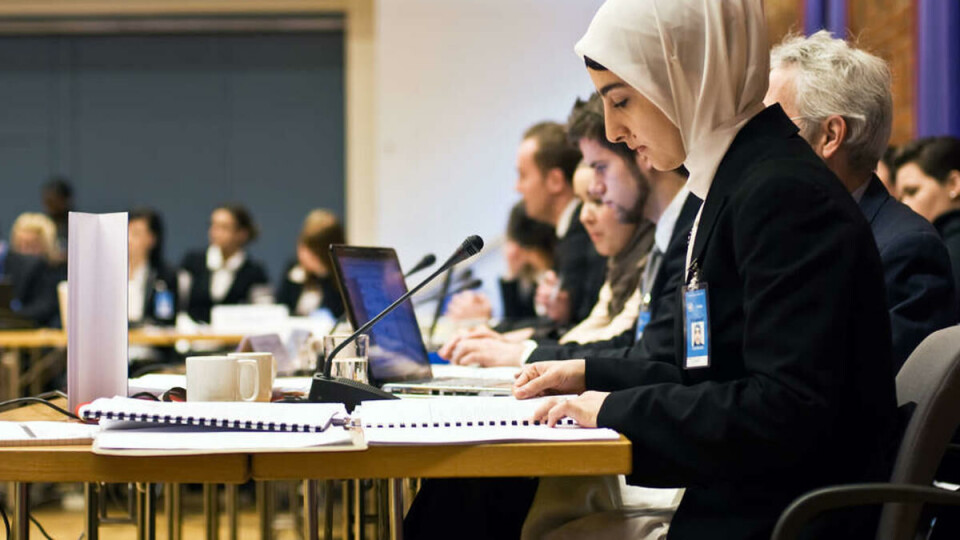
A UN in miniature
During the weekend, 64 students gathered in order to decide whether the Sudanese president should be sentenced for genocide.
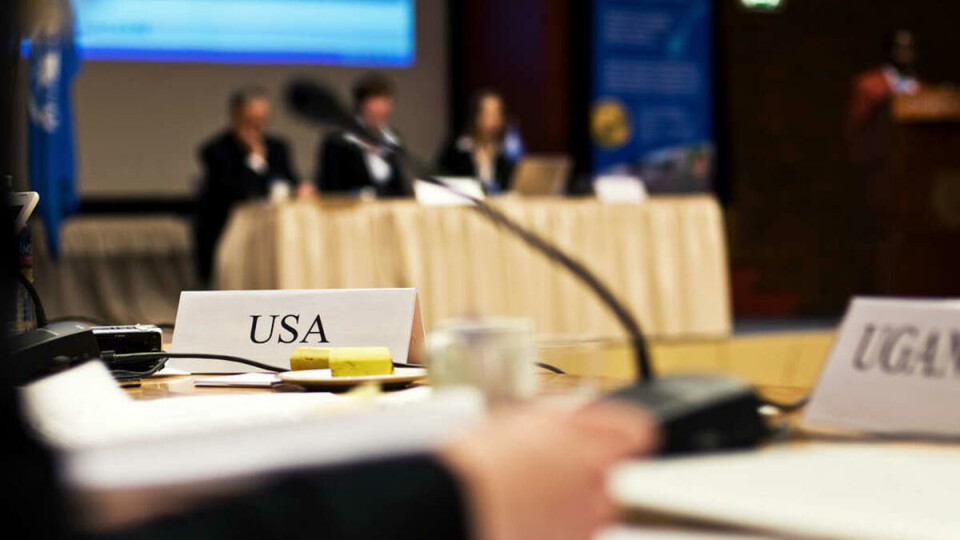
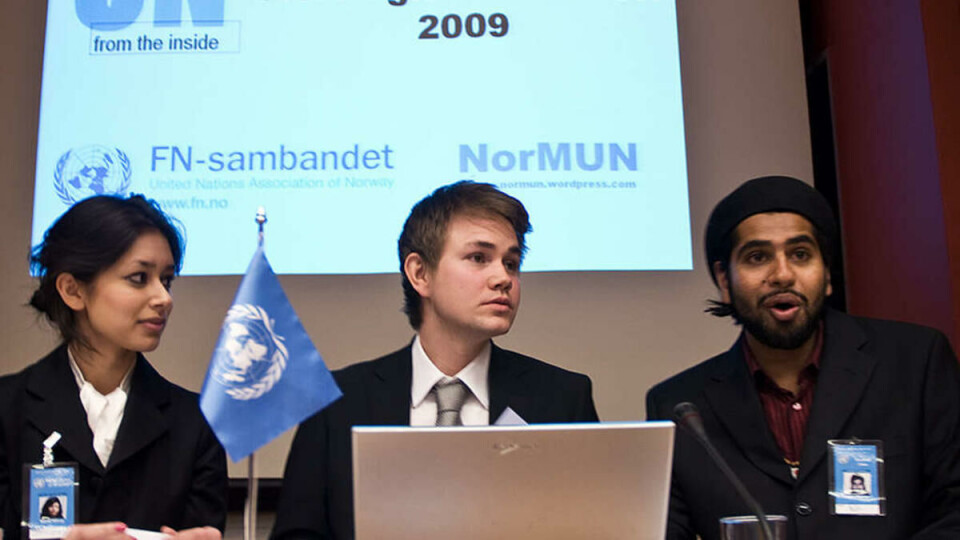
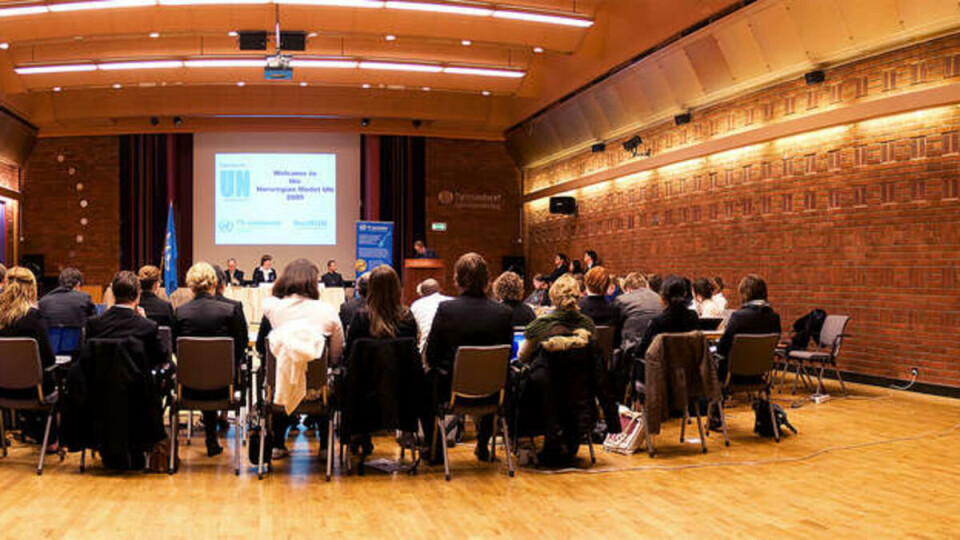
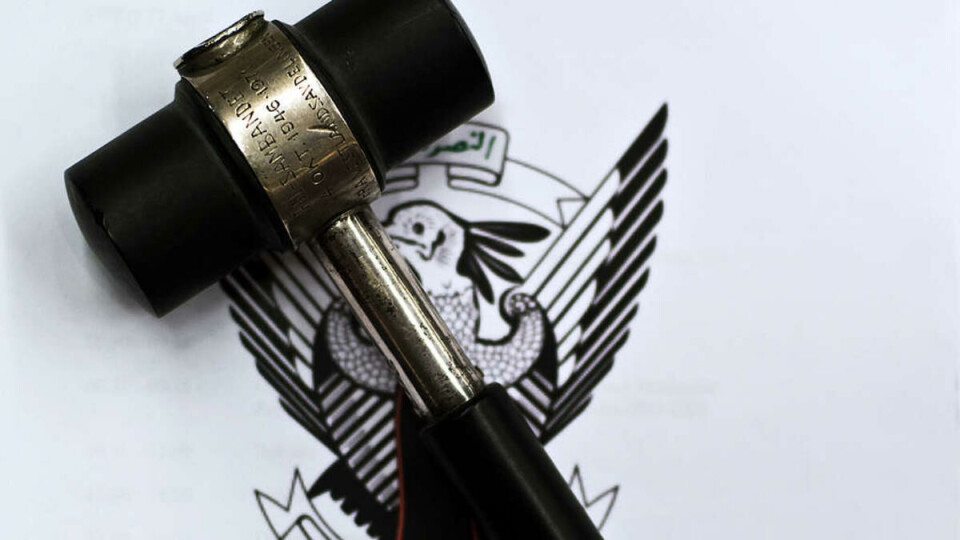
Textbooks have been traded in for suits and case documents when the UN invites students to partake in a game of role-playing. Millions are in dire need of food and medicine in Sudan, but President al-Bashir has expelled all humanitarian organizations from the country. It is up to students to solve the problem. This weekend, they are the UN Security Council.
Russian-Burkinabè alliance
– My name is Nancy Young, says «American» Amara M. Butt. Normally she is a law student at UiO, but today it is her job to make sure that American interests are taken care of in the Security Council.
Most of the participants only introduce themselves with their new alter ego. Appropriately attired in a black skirt and high heels, Young’s new ID card is very visible. Student life has unmistakably been traded in for world politics.
– This is both fun and educational. The model UN has a lot in common with law. Several parties disagree, and you meet in a common arena to try to reach an agreement, she says.
With new nationalities and identities handed out, the goal for the weekend is clear: Reaching a joint resolution that will lead to increased stability in Sudan. For six weeks, delegates have been working intensively preparing speeches and strategies. Now, the game has begun.
– We sent out notes and asked the others not to clap for the opening speech from the United States. And we gave an extra loud applause after Russia had spoken. In this way we show who we support, Reshaad Amra (23) reveals. His delegation is skeptical to Western superpowers entering the region, and would prefer it if the African countries could work things out on their own.
Normally the South African exchange student studies economics at UiO. Now he is only known as the delegate Pierre Bicaba from Burkina Faso. Exasperated, he flings his arms open.
– Burkina Faso! People do not even know that we exist!
Indiscriminate lobbying
There is a lively debate concerning whether the arrest warrant that the International Criminal Court (ICC) has issued on President al-Bashir should be postponed for a year. The president has responded to the accusation by ejecting humanitarian organizations.
Economics student Fredrik Werring (25) is discouraged. Costa Rica has been accused of being a banana republic, and Werring thinks that the country he represents has little real political power.
– It does not look like we are going to succeed in our main goal, which is to support the ICC’s charge against the president. We see a clear division between the permanent member nations that have the right of veto, and the other delegations. Some have let the power go to their heads, he says.
In the corridor, there are lively discussions, for and against, back and forth. Some think that the resolution will secure calmer circumstances for peace talks. Others believe that a postponement will mean a green light for further genocide. The Russian delegation are vehemently opposing the warrant.
– Russia has been involved in questionable activities itself, so they aren’t out to get the Sudanese president. They fear that this would be like shooting themselves in the foot, and they do not want to risk ending up on the list of world leaders that need to be deposed, Werring says.
Delegates constantly grab hold of each other, and leave the meeting room in order to confer in the corridor. Eyes and ears are wide open, and rumours are spreading like wildfire.
– The most scary thing that this experience has taught me, is that the important decisions are made in the back room. When you enter the meeting room, the reality is that most decisions have already been made, says European Studies student Trygve Grønbekk (24).
– Like colonial times
Strategies are finely honed before the final round. The last alliances are sealed.
– It is frustrating, says Reshaad Amra, after Britain throws his delegation out of a private meeting.
– It is just like colonial times. The superpowers think that they can tell us what we should do.
The moment of truth has arrived. It grows quiet. Delegation after delegation announces their vote. Votes are counted.
– We have failed to reach an official resolution, the president of the Security Council announces finally. Russia has used its right to veto. After their proposition for a new resolution was voted down earlier in the day, they have decided to vote against the whole resolution. People shake their heads. Does this mean back to the beginning again?
– Absolutely not. The Security Council not reaching a decision is a realistic scenario. This is a good basis for further negotiations, says Amara M. Butt.
























